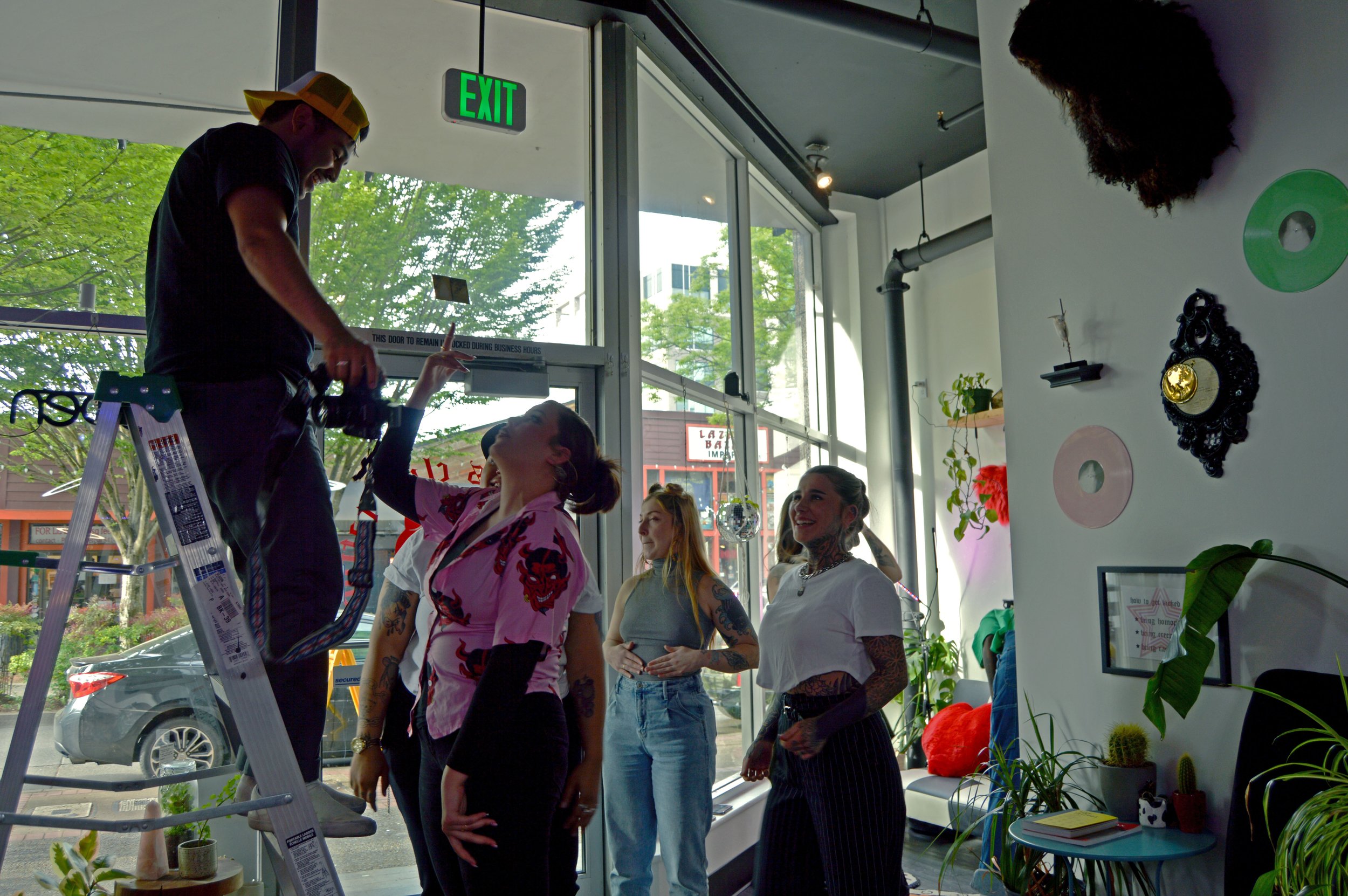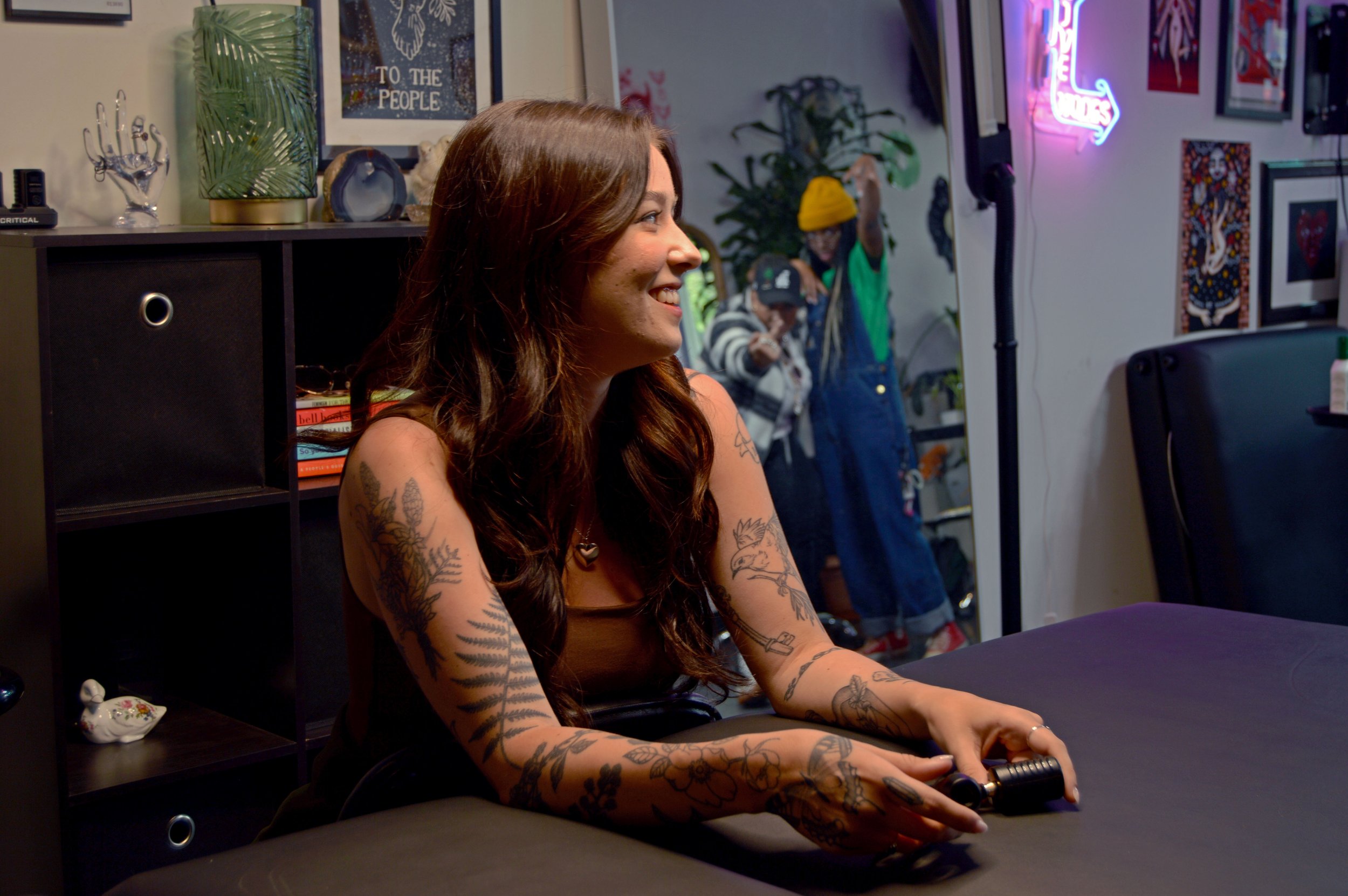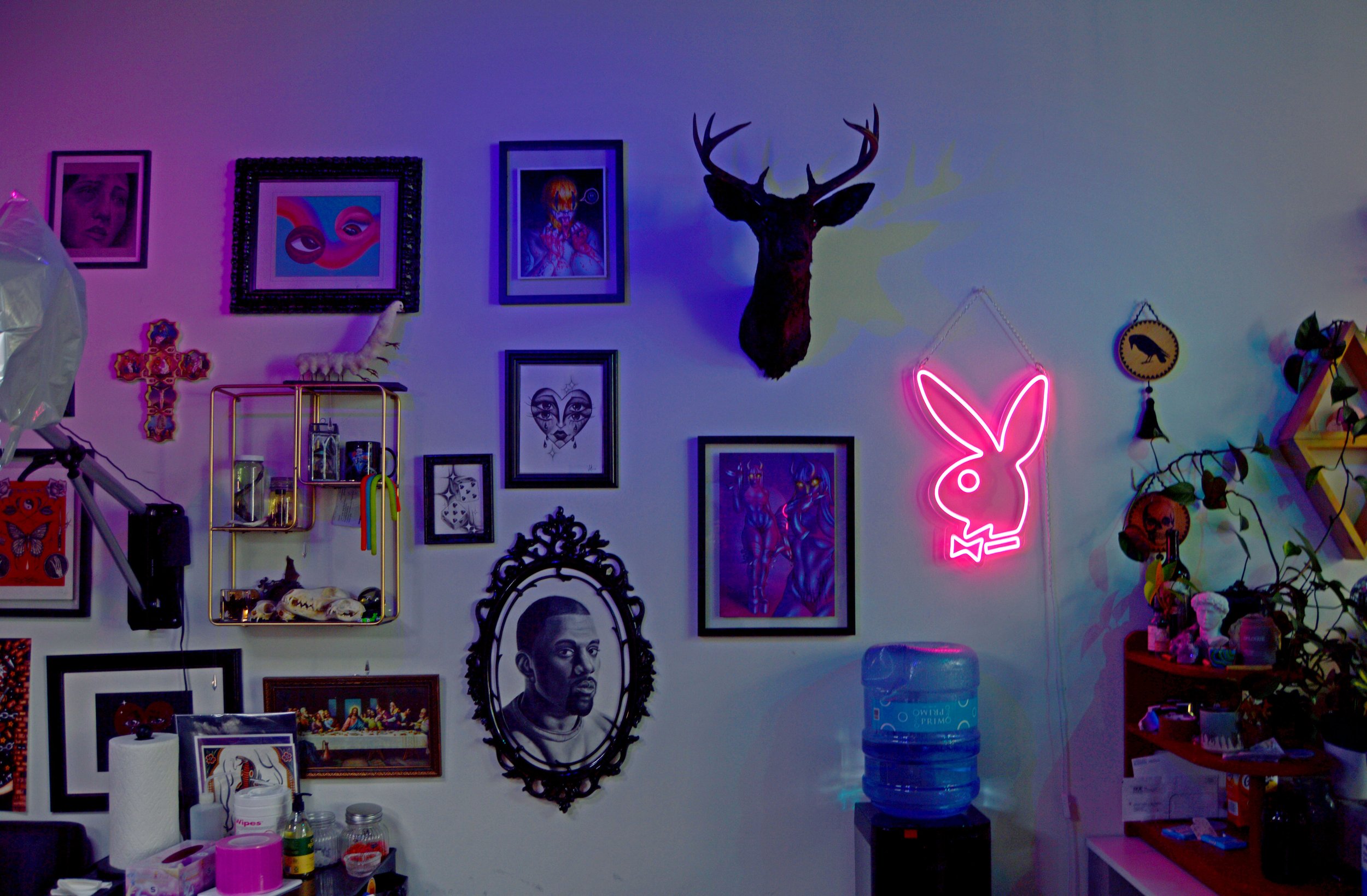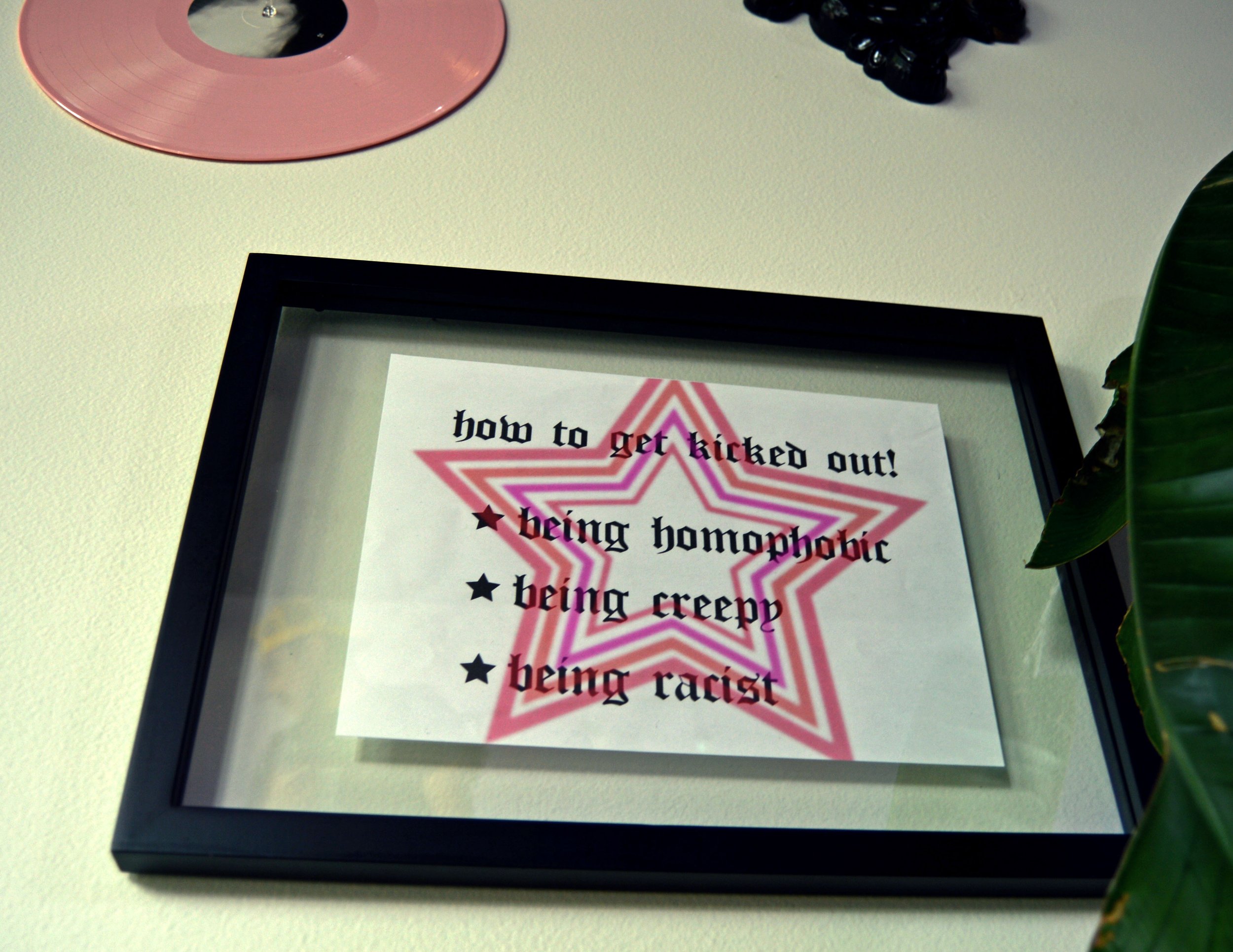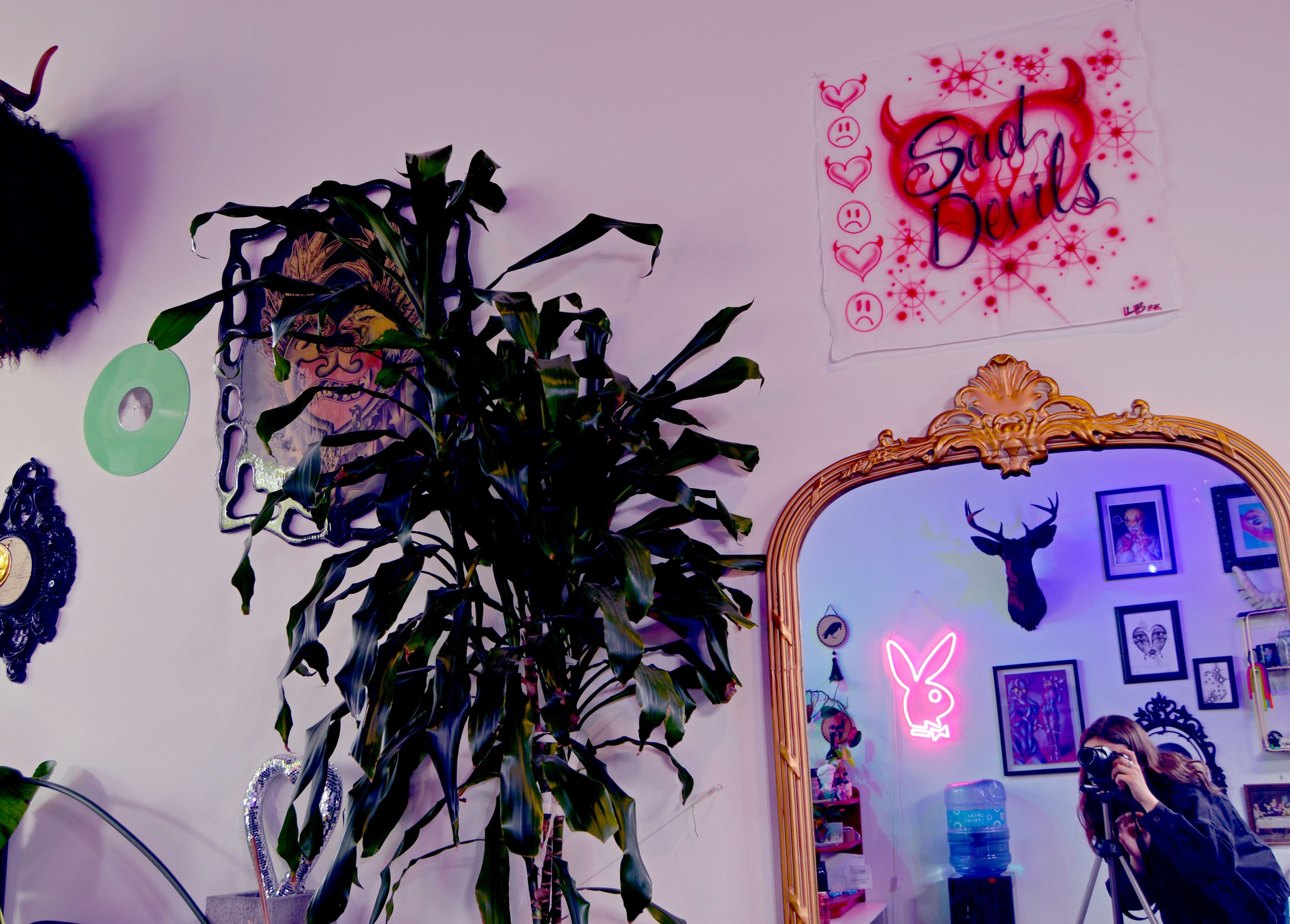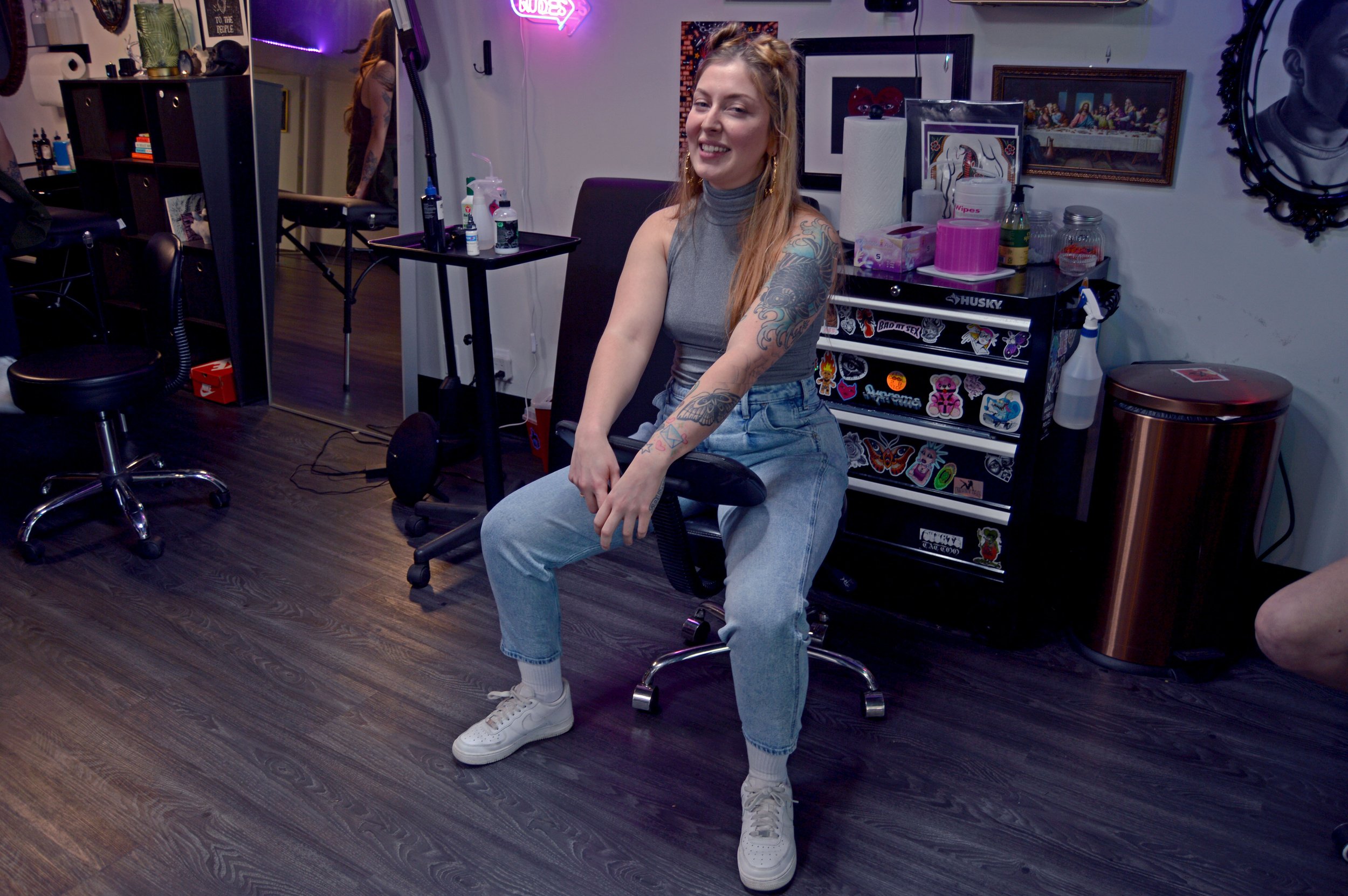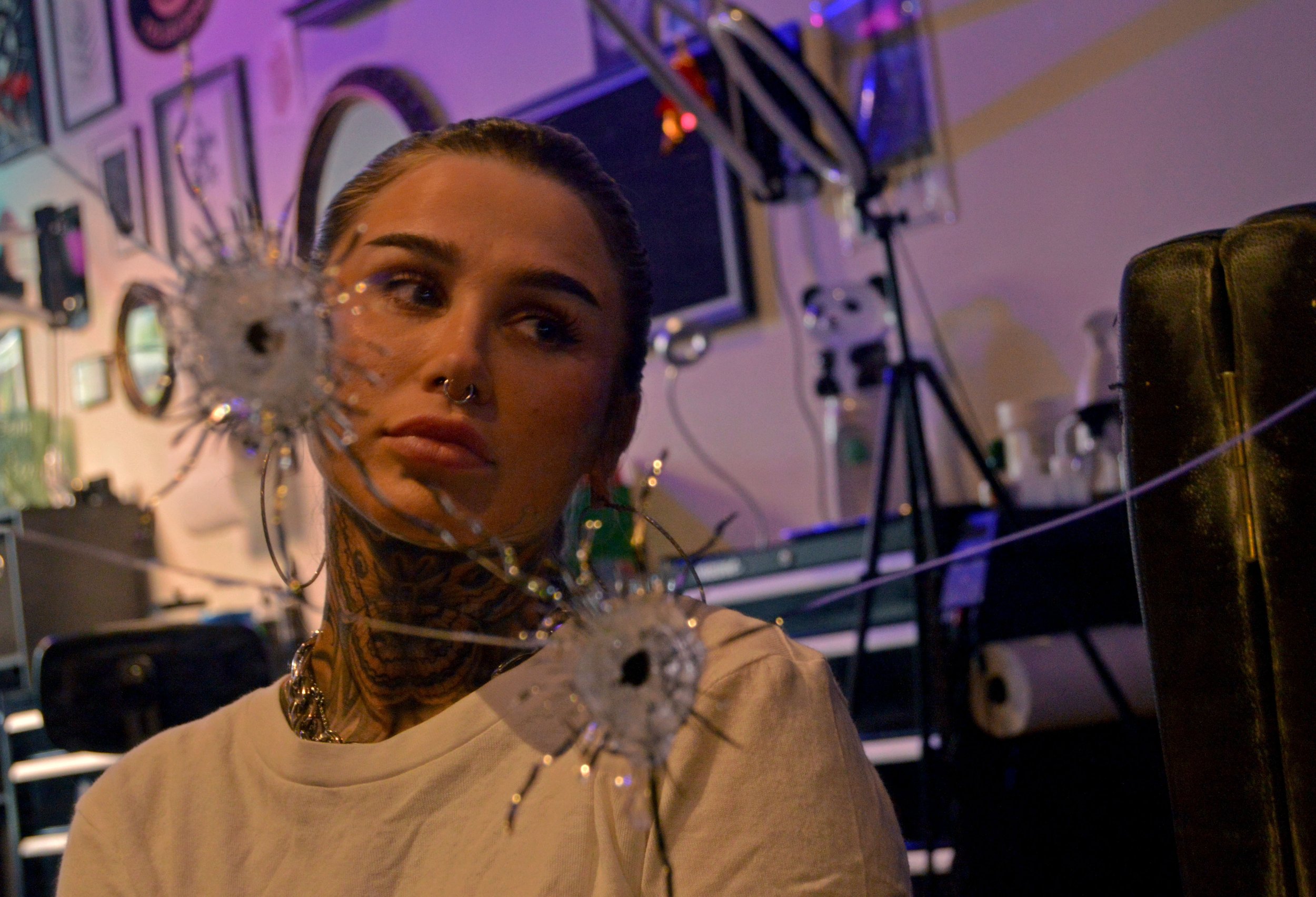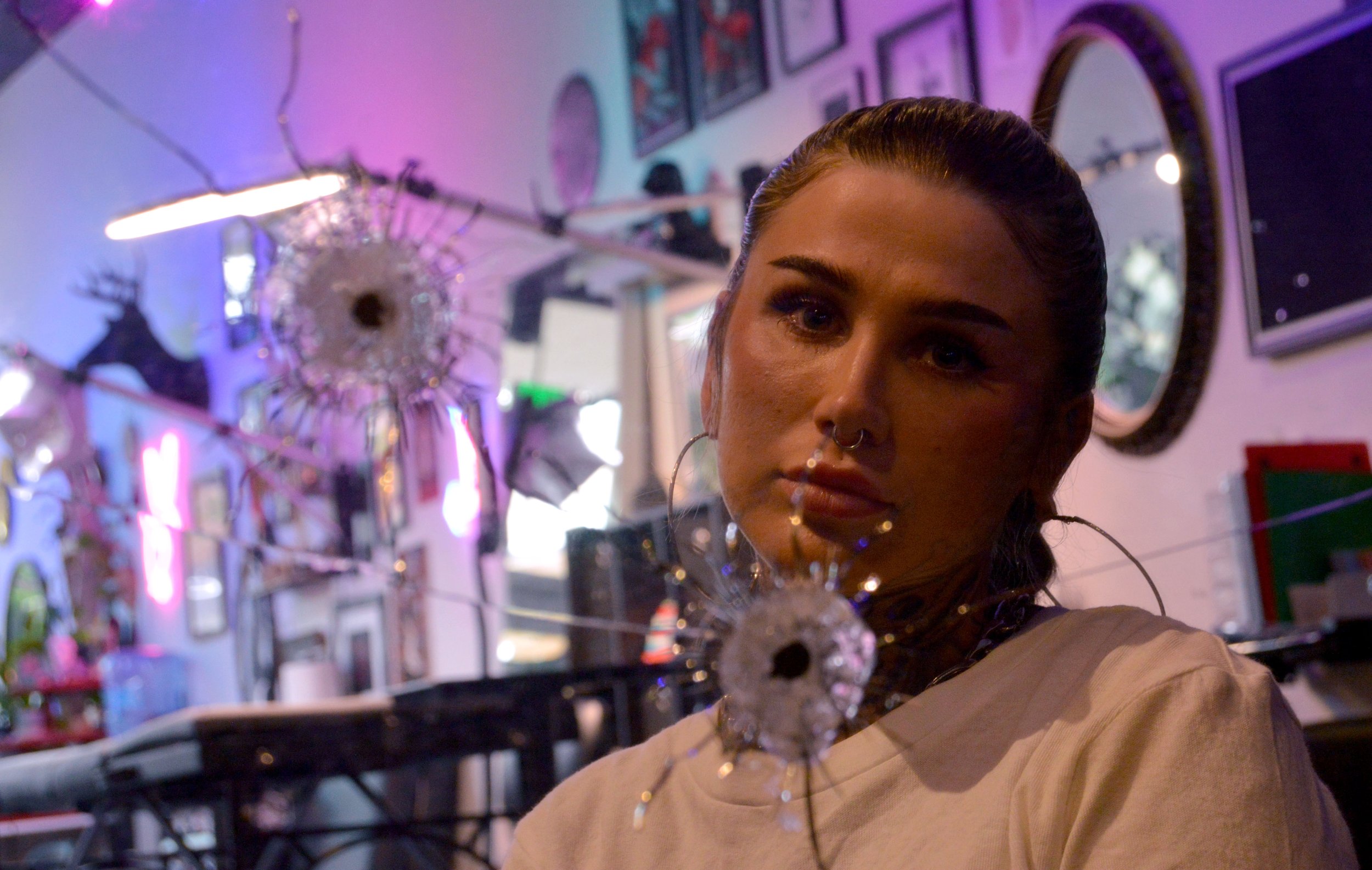
All Shawty’s Welcome
How the Sad Devils Club exists as a safe space for queer tattoo lovers.
Written and Photographed by Megan McEntee
Cover Photo by Gustavo Del Real Figueroa
Cover story for Green Eugene Magazine June 2022.
“Tattooing is one of the most intimate things you could possibly do for somebody,” said Lexi Frazier, owner of Sad Devils Club Tattoo in downtown Eugene. They’re right after all – nobody wants a piece of art on their skin that was done by someone they don’t align with. Tattooing is not only an intimate act, but it’s also a responsibility that requires the artist to truly understand the client; where they came from, where they’re going and most importantly, who they are now.
With flashy neon signs, vibrant decor and a comfortable atmosphere, Sad Devils Club has nothing short of incredible curb appeal. But the true allure of the shop can be credited to the Sad Devils themselves. As a staff of entirely queer and femme-presenting artists, SDC provides a new approach to the traditional tattoo shop. “The industry itself is a huge boys club,” said Frazier while reflecting on the previous experiences of her staff. “There are not a lot of women tattooing in general.”
According to Frazier, the tokenization of women and femmes in tattooing has always been the status quo. Often, old-school shops only have one or two women employed, which makes the industry incredibly competitive. This only contributes to the struggle, both internal and external, that women face every day in our society; that they have to fight tooth and nail to be seen as equal. Over time Frazier has recruited five femme-presenting artists from these kinds of situations, and given them an opportunity to tattoo alongside friends they align with.
Before coming to Sad Devils Club, artist Jocelynn Stewart worked at a shop where she was treated very poorly. “We're really setting a different standard because we're open minded and kind to everyone,” she said while reflecting on SDC. “There’s no sense of competition here.”
The Sad Devils are all about creating an environment rooted in positivity, acceptance and genuine connection. Although colleagues on paper, at the end of the day their friendship is what matters most.
“When it comes to the people here, they're all amazing and have such different personalities,” said Frazier. “We all mesh together, and it's a really unique thing that I haven't witnessed at any other shop.” Between the vibrant decor, smiling faces and inside jokes hidden in plain sight, the collaboration is apparent as soon as you step through the doors. They even find themselves sharing clients, which further tears down that competitive status quo.
Their loyalty extends past their colleagues as well, as they’ve committed to be a beacon of strength and acceptance in the community. Sad Devils Club welcomes individuals from all walks of life, especially queer folks and people of color. The phrase All Shawty’s Welcome is highlighted on both their Instagram page as well as in their conversations with each other.
This is a testament to how they don’t necessarily market off their own queerness as a selling point, which is a common theme in rainbow capitalism, but rather they attract clients of similar backgrounds by simply existing in their own identities. Rather than plastering rainbows to their portfolio as an outreach marketing strategy, their pride exists with casual intimacy as tattoo artists who happen to be queer.
“As far as identifying as a queer artist, the first place I've really been open about that is here,” said Stewart.
Frazier deeply appreciates the client connections that arise from being a safe space, and doesn’t go out of her way to unauthentically force a sense of inclusivity. “People who just came out as queer or trans feel safe enough to be here and share those experiences with us,” they said.
Working at the shop also provides the Sad Devils a space to be vocal about important issues. They are avid advocates for the Black Lives Matter movement, LGBTQ+ rights and body autonomy to name a few. They even house the first Black femme-presenting tattoo artist in Eugene, Josephine Pascoe-Long, and at 23-years-old they’re paving the way for other Black women who want to break into the industry.
Many working class citizens, especially queer people and people of color, unfortunately don’t have the luxury to be able to publicly stand up for what they believe in. Although it shouldn’t have to be a luxury, there are still countless workplaces that don’t like their employees to take strong stances in the public eye. Moving beyond workplaces, many queer and POC individuals need to walk on eggshells to protect their most basic safety. Sad Devils Club is able to be a voice for those people – and stomp on those eggshells – because the nature of their work allows them this kind of freedom.
“It was nice to be able to come and share my experience freely because that's never happened,” said Sophia Kinaya Haug, a SDC nail tech and BLM activist. “This is the first inclusive space I've ever worked in.” Haug and Frazier avidly protested together in 2020 – another testament to how they organize in both a tangible and collaborative way.
Their activism is multifaceted, intolerant of hate and apparent through the signage on their storefront, internet presence and grassroots organizing. Each artist takes these issues very seriously, because palpable injustices are still happening in their community – and to them directly.
In October of 2021, at their previous location near Washington Jefferson Bridge, Sad Devils Club was targeted in an active shooting incident.
“He rolled out of a car and loaded off a whole clip into the shop,” said Frazier while recounting what she saw on the Ring footage. “It was obviously personal.”
Luckily nobody was in the shop during the attack, but it was a sobering reminder that there’s still hate and intolerance in an increasingly progressive city. The expected – and completely valid – reaction to this could have included quieting down and making themselves smaller.
But the Sad Devils decided to do the opposite. They didn’t back down from their values and continued to stand up for themselves and other members of their community. Soon after the shooting, Frazier began looking for a new location. They eventually landed on the flashier storefront downtown, with more space and more bystanders. “We don't bother nobody,” said Stewart. “We try to stand tall in our community, and if you have an issue with that, what's wrong with you?”
The new and improved Sad Devils Club, located next to Cowfish Dance Club, is surrounded by heavier security and more supportive neighbors. The storefront still displays messages of inclusivity, and each artist is louder and prouder than ever before.
Members of any marginalized community can walk through the doors and know that they are cared for – know that they are seen. At the end of the day, the Sad Devils are making sure that the needle isn’t the only thing leaving an impression.
